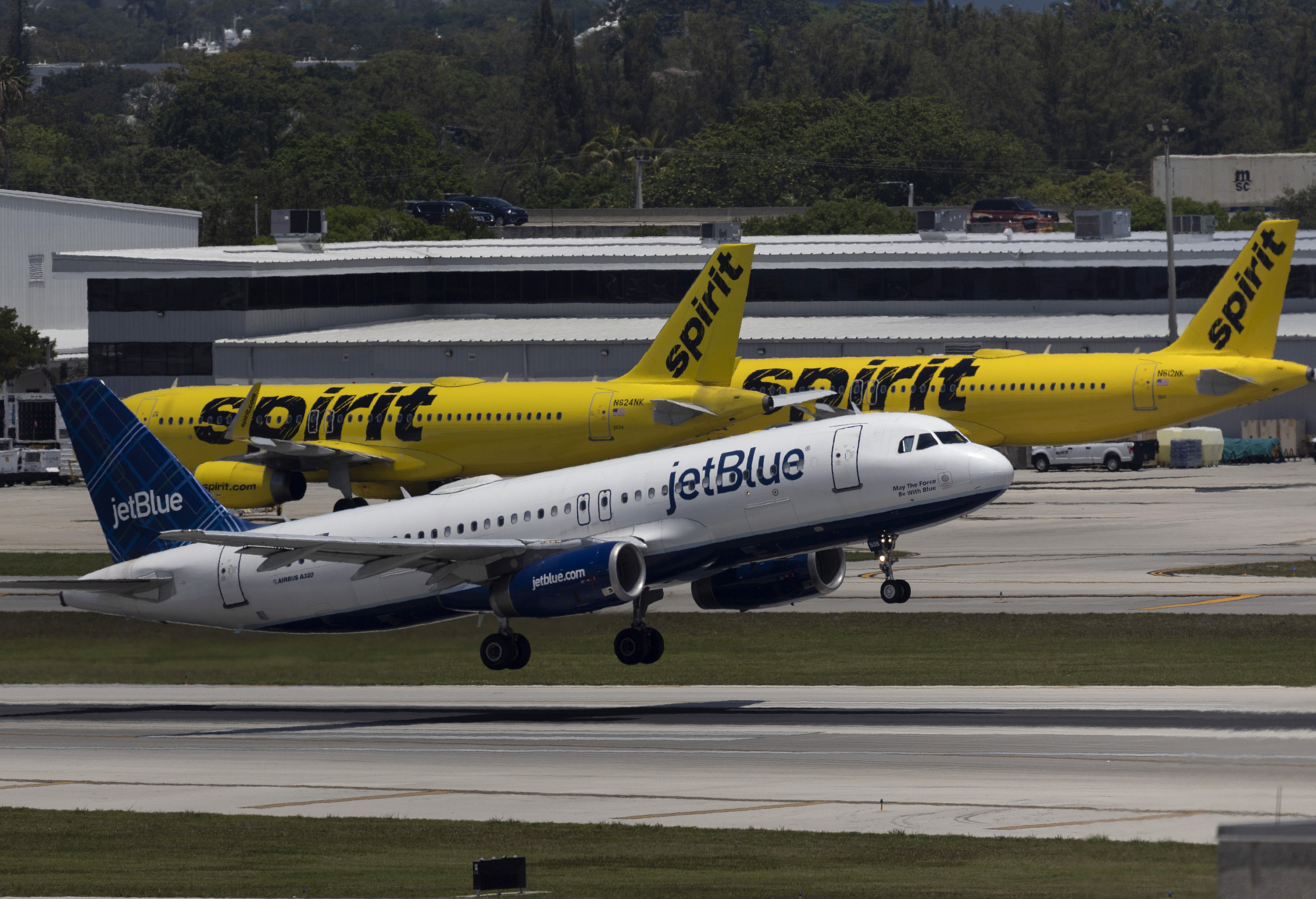JetBlue primed to purchase Spirit Airlines following shareholder approval


A free daily email with the biggest news stories of the day – and the best features from TheWeek.com
You are now subscribed
Your newsletter sign-up was successful
Spirit Airlines shareholders have approved a $3.8 billion takeover by JetBlue Airways, in a deal that looks primed to create the fifth-largest airline in the United States.
Spirit made the announcement in a Wednesday press release, with more than 50 percent of the stock owners voting to approve the deal. The merger must now go through the final regulatory steps, and Spirit said they expect the transaction to close "no later than the first half of 2024."
JetBlue first made the multi-billion, total-cash offer for Spirit earlier this year, and the two came to a preliminary agreement in July following a series of hostile negotiations. Spirit was also in talks to merge with Frontier Airlines in a cash-and-stock deal that fell apart following JetBlue's offer.
The Week
Escape your echo chamber. Get the facts behind the news, plus analysis from multiple perspectives.

Sign up for The Week's Free Newsletters
From our morning news briefing to a weekly Good News Newsletter, get the best of The Week delivered directly to your inbox.
From our morning news briefing to a weekly Good News Newsletter, get the best of The Week delivered directly to your inbox.
JetBlue is planning to eliminate the Spirit brand following the takeover, CNBC reported, with the outlet noting how Spirit's low-cost airfares and minimal frills contrast with JetBlue's higher-end service and business-class offerings. JetBlue is reportedly planning to retrofit Spirit's planes to more closely resemble its own.
However, the transaction is likely to face heavy scrutiny from antitrust regulators. The Biden administration has argued against these types of megadeals, saying they are harmful to consumer spending. Biden and his legal team have made significant efforts to try and tone down corporate mergers, though they've often had little success in court.
JetBlue and Spirit have denied breaking any antitrust laws, and said they look forward to continuing their work with federal regulators.
A free daily email with the biggest news stories of the day – and the best features from TheWeek.com
Justin Klawans has worked as a staff writer at The Week since 2022. He began his career covering local news before joining Newsweek as a breaking news reporter, where he wrote about politics, national and global affairs, business, crime, sports, film, television and other news. Justin has also freelanced for outlets including Collider and United Press International.
-
 ‘Restaurateurs have become millionaires’
‘Restaurateurs have become millionaires’Instant Opinion Opinion, comment and editorials of the day
-
 Earth is rapidly approaching a ‘hothouse’ trajectory of warming
Earth is rapidly approaching a ‘hothouse’ trajectory of warmingThe explainer It may become impossible to fix
-
 Health insurance: Premiums soar as ACA subsidies end
Health insurance: Premiums soar as ACA subsidies endFeature 1.4 million people have dropped coverage
-
 Buffett: The end of a golden era for Berkshire Hathaway
Buffett: The end of a golden era for Berkshire HathawayFeature After 60 years, the Oracle of Omaha retires
-
 Tariffs have American whiskey distillers on the rocks
Tariffs have American whiskey distillers on the rocksIn the Spotlight Jim Beam is the latest brand to feel the pain
-
 TikTok secures deal to remain in US
TikTok secures deal to remain in USSpeed Read ByteDance will form a US version of the popular video-sharing platform
-
 SiriusXM hopes a new Howard Stern deal can turn its fortunes around
SiriusXM hopes a new Howard Stern deal can turn its fortunes aroundThe Explainer The company has been steadily losing subscribers
-
 Unemployment rate ticks up amid fall job losses
Unemployment rate ticks up amid fall job lossesSpeed Read Data released by the Commerce Department indicates ‘one of the weakest American labor markets in years’
-
 How will the Warner Bros. bidding war affect the entertainment industry?
How will the Warner Bros. bidding war affect the entertainment industry?Today’s Big Question Both Netflix and Paramount are trying to purchase the company
-
 Texas is trying to become America’s next financial hub
Texas is trying to become America’s next financial hubIn the Spotlight The Lone Star State could soon have three major stock exchanges
-
 US mints final penny after 232-year run
US mints final penny after 232-year runSpeed Read Production of the one-cent coin has ended
